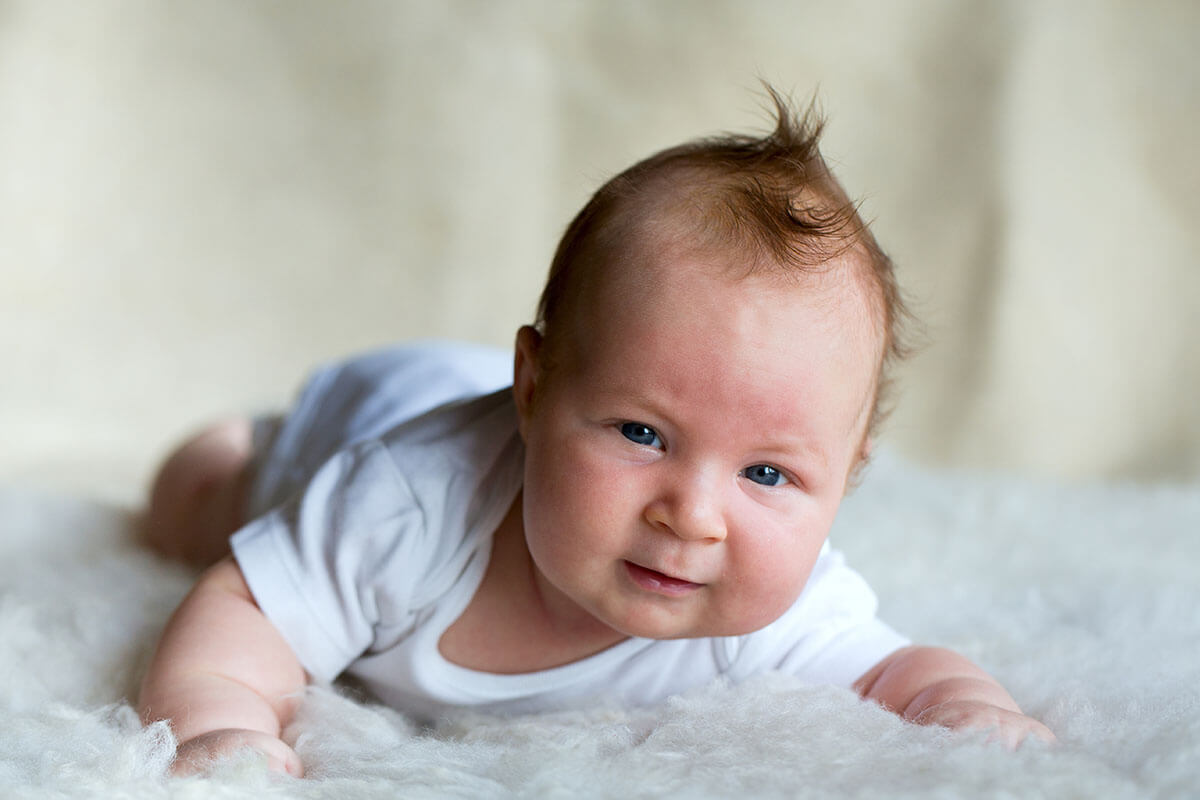Fusion with mother
A baby is in the symbiotic phase during the first 3 months. In this phase, a baby is fused with his parents and often especially with the mother. The baby especially wants to cuddle with its mother and father. It has a strong need for that. The baby wants to feel warmth and security all the time. Scientists say that a child forms a feeling unit with the mother and with the father. The baby wants to be satisfied sensually and, for example, eat when it wants to eat, pee and defecate when it wants to pee and defecate. This stage is very important because the child wants to feel warmth and security, but cannot yet distinguish between itself and others. So this security and warmth the child wants from the parents. In this phase a foundation is laid for feeling safe with oneself and with others.
Social interactions
In the first three months, a variety of social interactions develop in which adult and baby take turns looking at each other, touching, laughing and vocalizing. The baby follows objects with his/her eyes. Following objects is an important precursor to social skills (VerhuIst, 2008). A baby can smile, or smile when the baby sees a face, sees a smile or hears someone else's voice. This stage lasts for a few months. During the first few months, the baby cannot distinguish between itself and the outside world. Thus, the baby cannot distinguish between itself and its mother (and father). In the first stage, the baby slowly begins to gain a little more clarity that there is a difference between herself/himself and the world outside the safe cocoon of herself and his mother/father. But the mother (and the father) remain the focal point and the safe benchmark to begin to orient himself a little more.
The milestones of the second month:
The shape of the baby's head is changing. The baby can lift its head slightly, but still needs neck support. The baby can follow a moving object. A baby's movements become more purposeful. The baby begins to use his hands and make sounds and sometimes can already smile.
Can I trust the world?
According to psychologist Erik Erickson, the first two years lay the foundation for basic trust in life, in others and in the world. When parents are able to properly meet the baby's needs, the child gains a solid foundation. A child gains a strong sense of trust in others, but therefore also in himself. The child relies heavily on parents to be nurtured and reassured. The building blocks of the sense of trust are warmth, regularity and a good dose of love and affection. If parents are not sufficiently able to establish a firm and secure environment, a child's development is at risk. Babies become frustrated or withdraw. And without being able to put words to it, they develop a lack of self-confidence. If parents are not sufficiently able to provide basic confidence, the foundation is laid for the child to feel that the world is unpredictable and even dangerous. It should be added that if at times a child's needs are not met and the environment is not completely safe, of course this is not a problem. Children are thus also prepared for a world that is not always safe.

